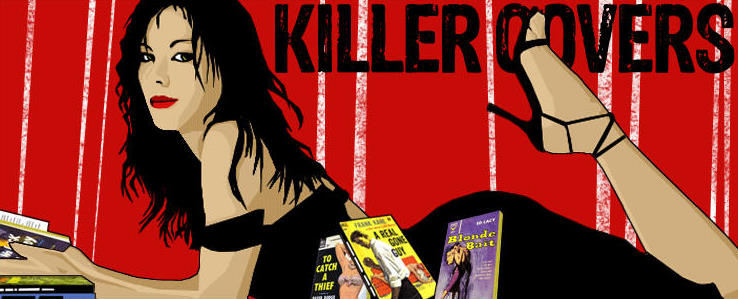
Usually, when I sit down to comment on a book for this blog, I have all sorts of information ready at hand: background about the author, as well as the cover artist and the work’s plot. In this latest case, however, I start with comparatively little. Most of what I know about A Gun in His Hand--a slender, 150-page work by Victor Rosen--comes from a review posted on Amazon.com, contributed by New York reader Michael A. Coluccio. He describes the book as an
Interesting, well-researched biography of Francis [“Two Gun”] Crowley, a small-time car thief and stickup artist who became the object of a statewide manhunt after he cold-bloodedly shot and killed a Nassau County, New York, police officer in 1931. Crowley and his partner-in-crime, Rudolph “Fats” Duringer, who was himself a suspect in the shooting death of a dance-hall hostess whom he murdered after she resisted his advances, were traced to an apartment on Manhattan’s Upper West Side on May 7, 1931. The ensuing gun battle between the fugitives and literally hundreds of policemen drew record crowds of onlookers and lasted for hours before the two were finally overpowered and taken into custody.Drawing on that headline-grabbing violence, Victor Rosen (who also wrote under the pseudonym “Victor Zorin”) penned what Coluccio says is a non-fiction book “definitely worth reading.” A Gun in His Hand follows Crowley (described as possessing “the face of a choirboy, the mind of an imbecile, and the heart of a diamond-back rattlesnake”) and Duringer as they are “separately tried for murder, convicted, and electrocuted at the death house at Sing Sing Prison.”
You can see that artist Barye Phillips had plenty of material to work with when paperback publisher Gold Medal Books assigned him to create an appropriate--and appropriately tension-filled--jacket for its 1951 edition of A Gun in His Hand (shown above). Phillips, according to one online biography, “was a prolific cover artist perhaps best known for his work on Fawcett’s Gold Medal Books, including most notably Richard [S.] Prather’s Shell Scott series. He also did covers for Avon, Bantam, Dell, Pocket, and Signet. He began his career in paperback cover illustration in 1943 for Pocket Books after working in Columbia Pictures’ advertising department. Phillips eventually became known as ‘The King of Paperbacks’ due to the speed and the variety of his work--he
 typically produced four cover paintings per week!” Among Phillips’ other outstanding creations were the jackets of Hill Girl, by Charles Williams; Danger in Paradise, by A.S. Fleischman; The Dangerous American, by A.E. Hotchner; and Man Divided, by Dean Douglas.
typically produced four cover paintings per week!” Among Phillips’ other outstanding creations were the jackets of Hill Girl, by Charles Williams; Danger in Paradise, by A.S. Fleischman; The Dangerous American, by A.E. Hotchner; and Man Divided, by Dean Douglas.There’s no knowing now how long it took Phillips to come up with A Gun in His Hand’s front, but it doesn’t look like a rush job. It looks, well, fantastic! The bullet-riddled windowpane, the broken and falling curtains, the rifle cast aside on the bed, the torn and bloodied shirt on the masculine figure (who I assume was meant to be 5-foot-tall “Two Gun”), the appearance of fear but fortitude on the face of that delightfully underdressed blonde at his back, and all that gunsmoke fingering through the room--these were the ideal artistic components to draw a passing post-war reader out of his post-work doldrums and get him to fork over some change for a copy. The only element marring Phillips’ work is that repulsive white box in the lower right-hand corner, with its ridiculous teaser, “Two Women ... Two Guns ... and Two Deaths to Die.” Of course dying involves deaths; didn’t Gold Medal have somebody with copy-editing skills on hand to prevent such silly lines from appearing on its book covers? And couldn’t the art director have preserved the integrity of Phillips’ powerful illustration by running any such teaser across the white bedspread, rather than installing a clumsy box on the cover?
Phillips had to have been pissed about this mistreatment of his otherwise fine work. Maybe not as pissed as Crowley and his “moll” were about being shot at through a window, but pissed nonetheless.





No comments:
Post a Comment